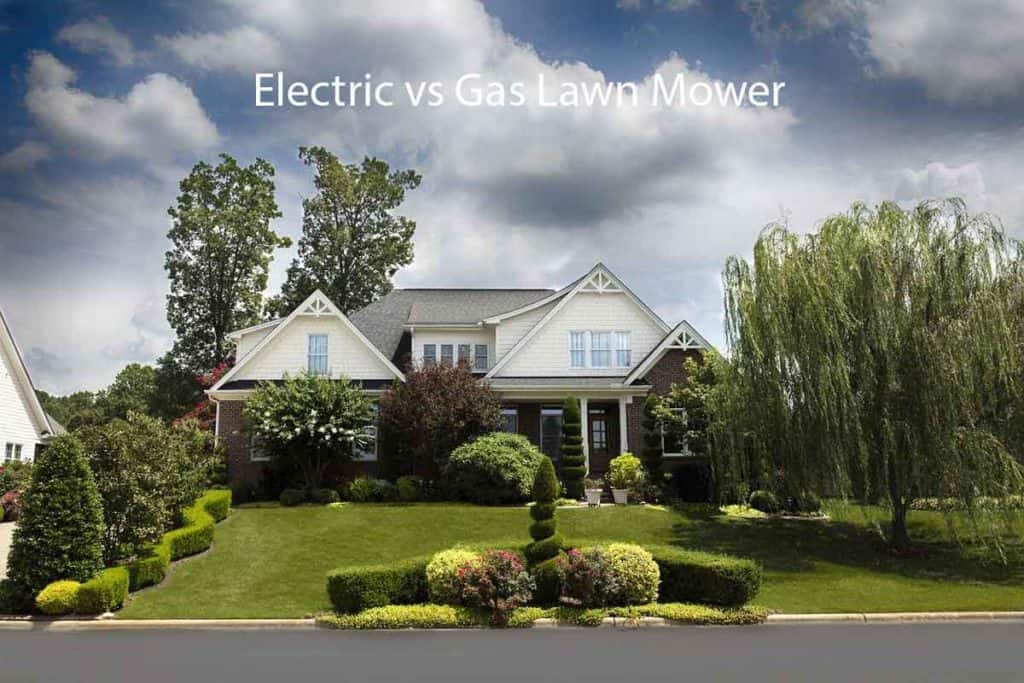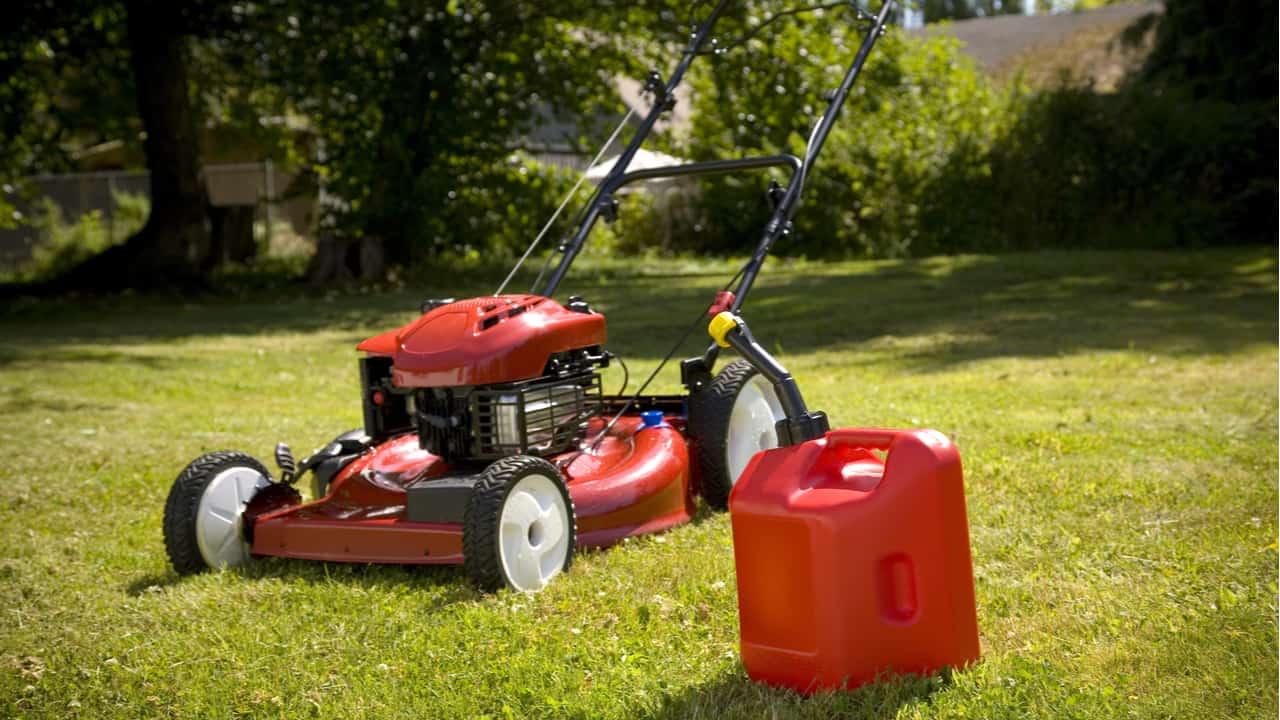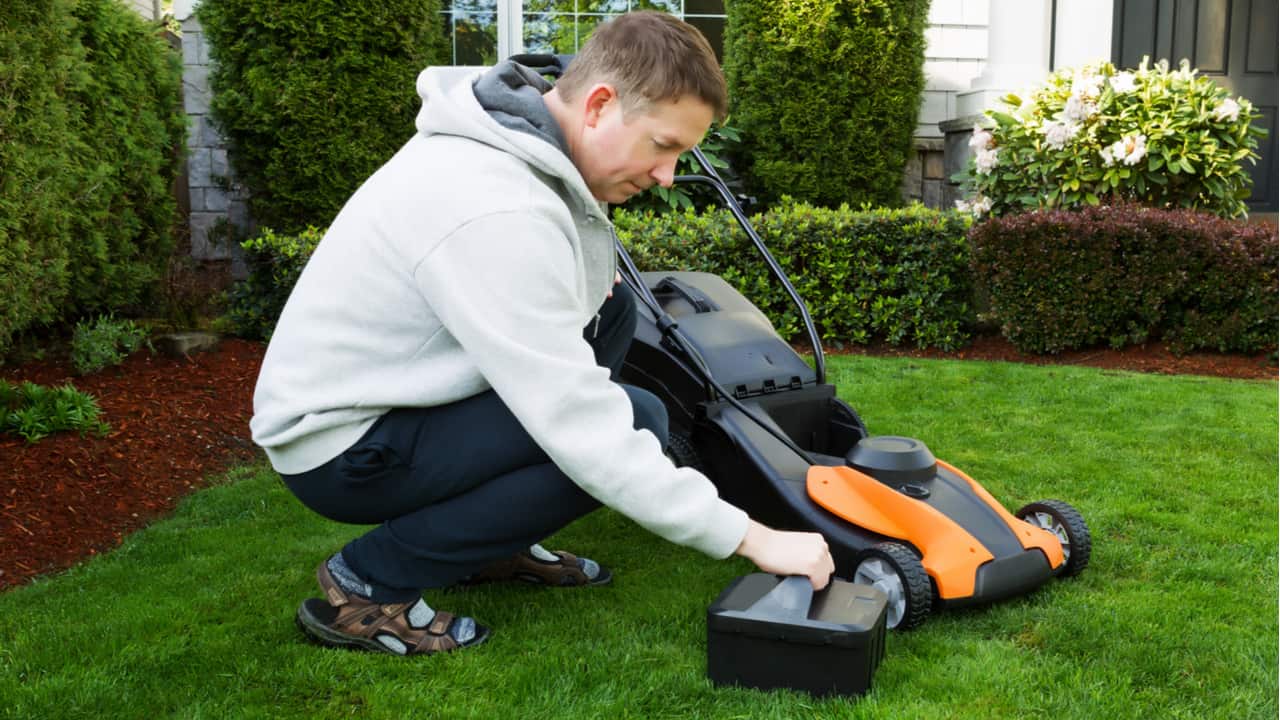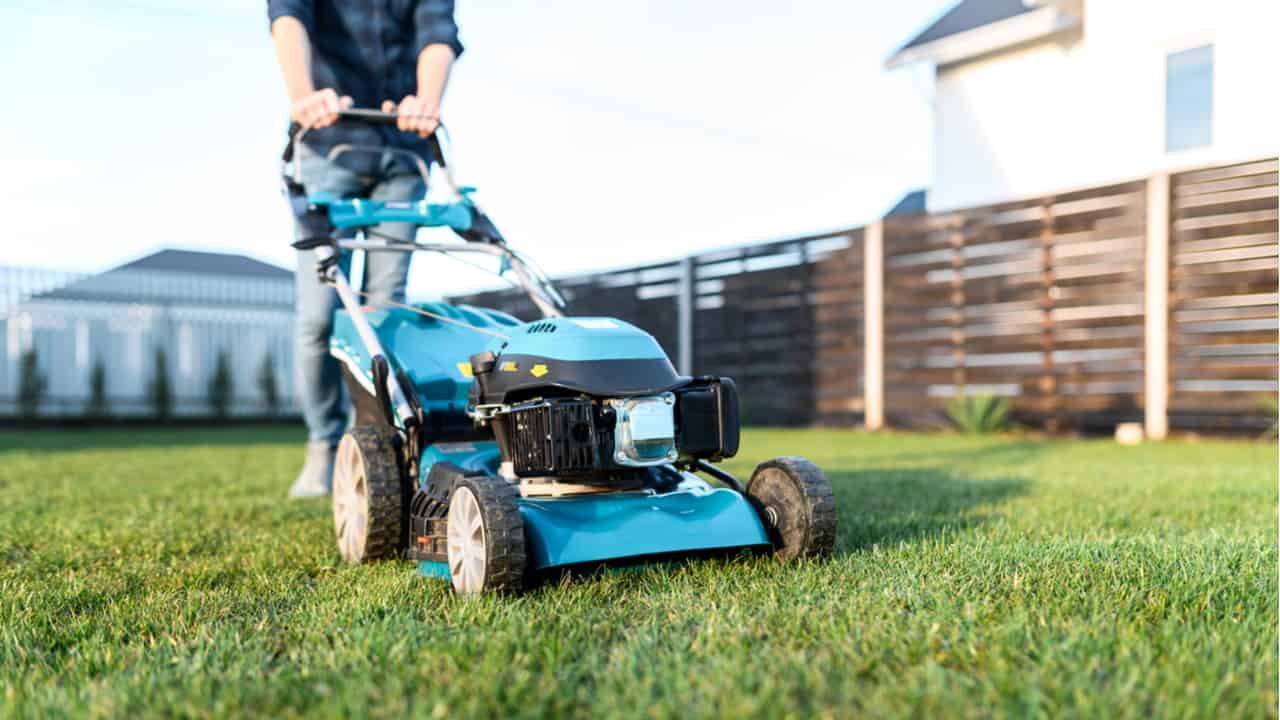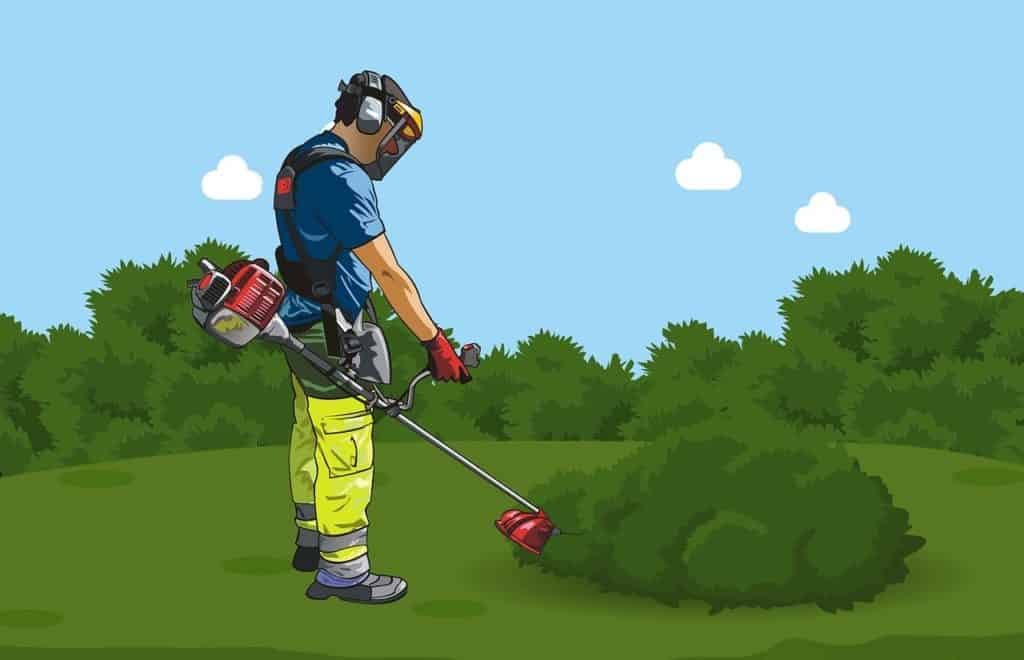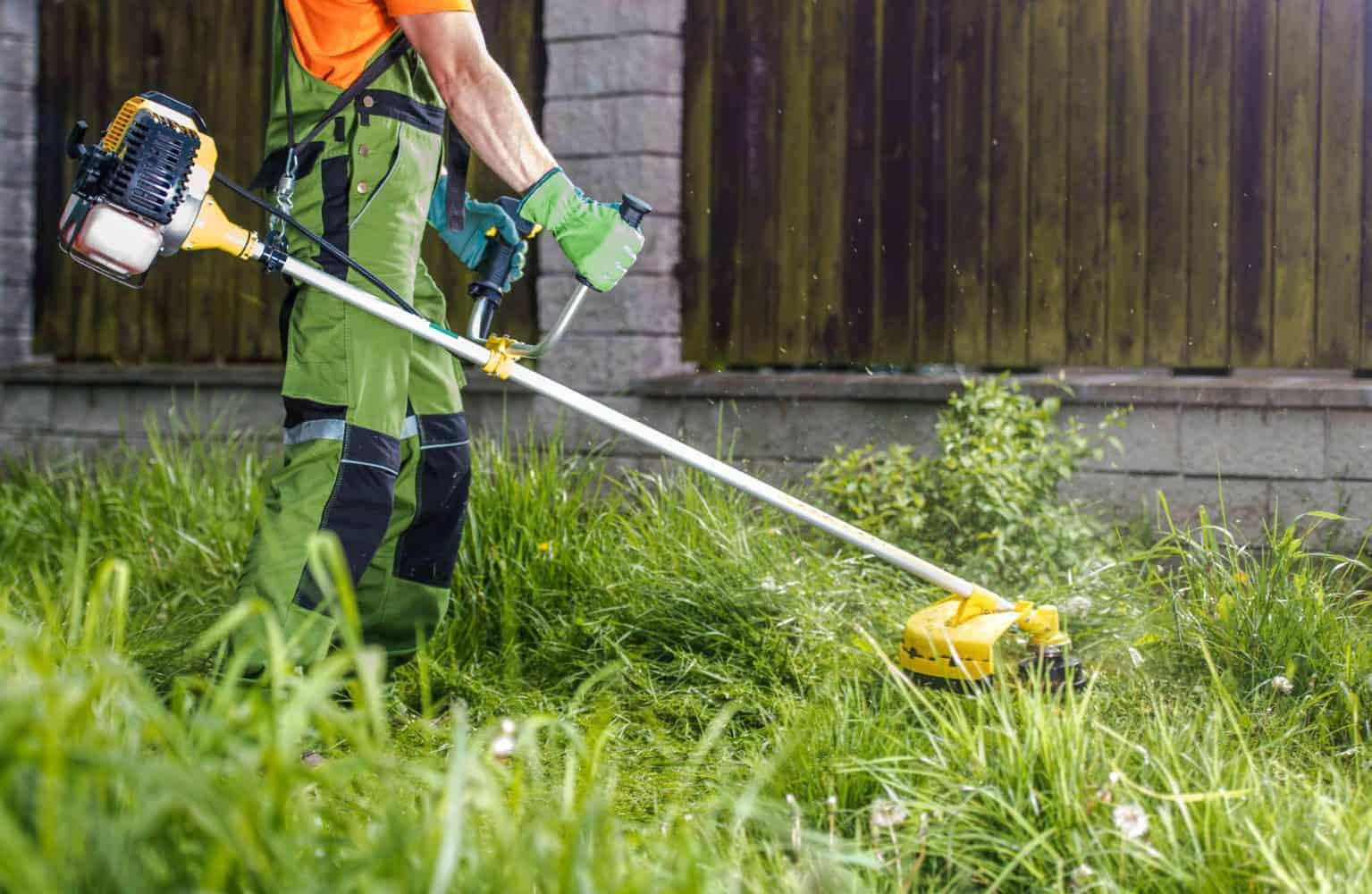Electric vs gas lawn mowers that what we are dealing with here. They have both come a long way since the first time they appeared on the market. The mowers of today are a result of an age-old quest for a faster, simpler, and more efficient solution for lawn care.
Thanks to renowned lawn care equipment manufacturers such as Troy-Bilt, Black & Decker, Honda, and Snapper, there are plenty of reliable mowers on the market today—both electric and gas-powered.
But, you’ll still have to make an effort to find the best lawn mower for your yard. To determine whether you should buy an electric or gas-powered mower, let’s see what both types have to offer and what factors you need to consider.
Contents
Lawn Mower Power
Gas-powered mowers are the clear winner here. The more power your mower has, the more challenges it can handle.
Tough springs of grass, bumps, stones, hills, and generally rougher ground can put too much strain on an electric model. If it’s not designed to handle such obstacles, and most electric models aren’t, it will burn out after a few months of service.
We judge the power of an engine of a gas-powered model by its torque. The average gas-powered mower can deliver between 4.5 to 8.75 feet/pounds of torque.
Motors don’t come with a torque rating. The average battery-powered mower has a motor with a power rating of 1,000 Watts and a rotational speed of 2,800 RPM. This translates to about 2.5 ft-lb. So, there’s no doubt that the average gas-powered model is considerably more powerful than the average electric model.
Price
Corder electric mowers are the most affordable because they don’t come with batteries or a gas engine. You can buy some of the best corded electric mowers for $200. When it comes to battery-powered models, prices start at $300 and they can go up to $900.
Gas-powered models are usually the most expensive. A decent gas-powered model costs at least $300 to $350. But, prices can reach as high as $1,500 in the upper range. Features such as self-propulsion and bagging options can significantly add to the price.
You should also consider operating expenses. On average, a gas model uses $20 to $35 worth of gas a year. The average electric model uses $15 to $20 a year in electricity.
However, this all depends on the price of electricity, the price per gallon of gasoline, and how often you mow. But, there’s no doubt that electricity is more affordable than gas, no matter where you live, and motors are considered to be more efficient than gas engines.
Operating Range
Corded-electric mowers have limited mobility. Your operating range depends on the length of the cord and the location of the nearest outlet. And, you won’t be able to find a corded-mower that has a cord longer than 100 ft.
If you use a longer extension cord the voltage will drop. This will cause the motor to overheat, which can lead to damage.
With a battery-powered or gas model, you are only limited by the amount of juice you have in the battery or tank. But, refueling a gas engine takes seconds. Waiting for the battery to recharge takes 30 minutes to 1 hour.
Safety
Both gas and electric lawn mowers come with their own particular safety concerns. Even though they come with helpful safety features, one must exercise caution when working with such machines.
For instance, you must be extra careful when refueling a gas mower. Spilling gas on hot engine parts can result in a disaster. You should always keep the fuel away from a heat source.
The cord on an electric mower isn’t just a nuisance, but a safety hazard. If you don’t watch your step, you can easily trip over it. There’s also the danger of running over the cord with your mower while the blades are engaged.
You also need to regularly inspect the cord for damage. Hauling a faulty cord across wet grass is a recipe for disaster.
When you use a corded-electric mower, make sure to plug it in an outlet that has a GFCI device. If something malfunctions or if there’s a short, it will instantly cut off the power.
Of course, you won’t need to bother with any of this if you only look at battery powered electric mowers.
Environmental Impact of Electric Mowers and gas Mowers
If you’re looking for an environmentally friendly solution, getting an electric mower is clearly a better choice. Corder electric mowers and battery powered mowers do not emit greenhouse gases and airborne pollutants. And, if you can use a sustainable electric system, you’ll be doing nature a huge favor.
But, let’s not forget about noise pollution as well. Gas mowers are really noisy machines. This may not bother you but it can bother your neighbors.
The noise an average gas model produces measures around 95 dB. So, you’d want to check your local noise regulations and ordinances before you power up your gas mower.
It’s also a good idea to wear hearing protection when using a gas mower. The average electric mower is not louder than a washing machine.
Weight
In general, gas mowers are 10 to 30 lbs heavier than electric models. A full gas tank is heavier than a battery pack of the same size. And, corded-electric mowers don’t even have batteries to begin with.
There are some advantages to working with a lightweight mower, especially if your yard isn’t that small. Another reason why electric models are lighter than gas models is the fact that they generally use ruggedized plastic components instead of metal.
Some electric models use more metal components, but not many. However, sometimes, going with a heavier mower is better, for example, if you plan to use it to pull a tiller.
For instance, if a mower is very light, it may not handle rough or thick grass very well. A heavier mower provides more stability, so you can count on it to deliver an even cut on a thick lawn.
Grass Type
What type of lawn mower you need may depend on the type of grass that’s growing in your yard. In other words, whether you should buy an electric or gas mower may depend on your region.
The thicker the grass, the more power you need to cut it. Electric lawn mowers generally aren’t as powerful as gas mowers. If you plan on mowing ticker, coarser grass such as St. Augustine, an electric lawn mower may not be the best purchase for you.
Generally speaking, grasses that grow in humid climates are tough to cut. So, if you live in the southern part of the USA, you’ll be much better off with a gas-powered lawn mower.
If you live in the northern zone or the transition zone, an electric lawn mower may be an option. If you are not sure about what type of grass grows on your lawn, or in your region, it’s best to talk with someone at your local lawn care center. Alternatively, you can check out this guide.
You should also consider how quickly the grass in your yard grows. If it grows very quickly, it means you’ll be using your new mower more frequently.
For fast-growing grasses such as ryegrass and Kentucky bluegrass, it may be best to use an electric lawn mower. This is simply because electric models require less maintenance than gas lawn mowers.
The more often you start up your gas-powered mower, the more often you will have to check the spark plugs, refill the gas tank, fog the engine, etc. If you have a small lawn of quick-growing grass, it’s not worth the hassle.
If you get an electric model, you won’t be spending more time maintaining your lawn mower than maintaining your lawn. You’ll only need to clean the cutting deck and sharpen the blades occasionally.
Yard Size
The bigger your yard is, the bigger your lawn mower needs to be. It’s simple: If you have more power to work with, you’ll get things done faster.
Electric lawn mowers are limited by cord length or battery capacity. If your lawn is larger than ⅓ acre, you should consider getting a gas mower. However, a riding electric model is also a good option.
While corded models offer more power, having to haul a 100-ft cord can be a pain in the neck, especially if you have to mow around a lot of obstacles. If your yard is between ¼ and ⅓ acre, researching battery powered lawn mowers be a good idea.
They are not as powerful as gas-powered models, but they can be very practical and convenient. They are a good option for small, flat lawns of fast-growing grass. But, for hilly landscapes, no matter their size, self-propelled models are the best option.
You can find both gas and electric self-propelled mowers, but, since they are designed to tackle hills, you’ll be better off with the more powerful gas models.
The average run time of a battery-powered mower is 1 hour. It usually takes 30 minutes to recharge the battery. You can also keep an extra battery so you can do a quick swap if you run out of juice.
A riding mower is a good investment if you have a yard larger than ½ acre. There are just a few riding electric models on the market. They can be a great choice for medium-sized yards.
They are not as noisy as gas-powered riding mowers, so they may be the best option for homeowners who live in a suburban area.
But, consider this: if your electric lawn mower runs out of juice while you’re mowing the lawn, you have to wait for hours for the battery to charge as they use much bigger batteries than walk-behind battery-powered mowers.
So, when it comes to very large yards, gas-powered lawn mowers or garden tractors are a better solution than battery powered lawn mowers. They come in 2 main varieties ZTR (zero-turn-radius mowers) and lawn tractors.
ZTR mowers are great for flat lawns with many obstacles. A ZTR model allows you to quickly trim grass around trees and work around garden edges.
Garden lawn tractors are generally sturdier. You can use a lawn tractor to haul debris and some models can even plow snow. Electric riding mowers, on the other hand, can’t be used with heavy-duty accessories.
Takeaway
So, who won? Electric vs Gas Lawn Mower- are electric mowers better than gas mowers or vice versa? The answer isn’t always so straightforward.
If you have a large, rough yard with many obstacles, you are better off with a gas mower. If you have a smaller lawn of easy-to-mow grass, an electric model is a more efficient solution.
As for everything in between, it depends on your preferences. Do you prioritize power over convenience? Versatility over affordability? Is the operating range of your mower more important than its environmental impact?
Before you choose a particular model, make sure to consider your own lawn care needs.

